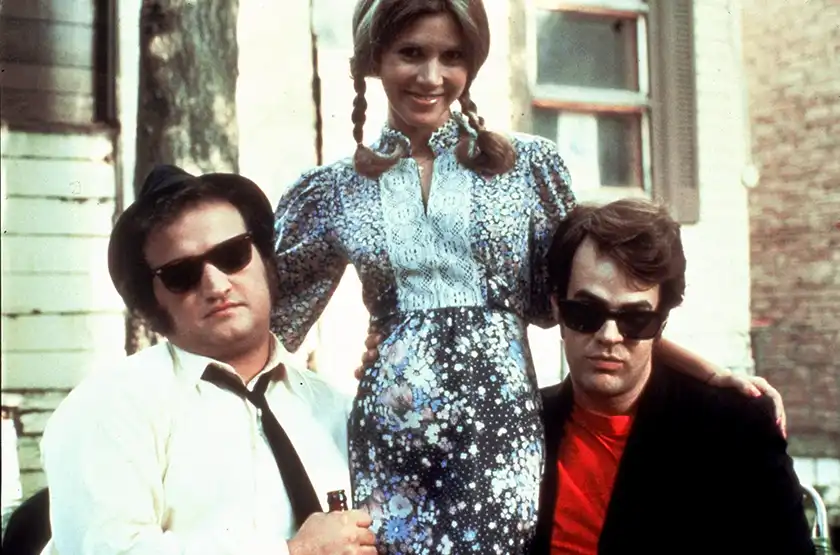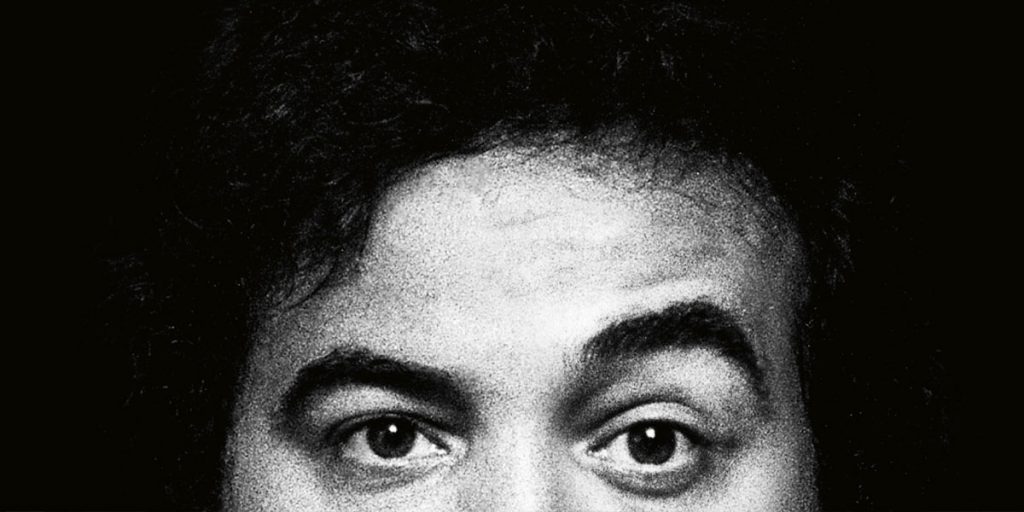Belushi is extremely effective in bringing to life one of Hollywood’s legendary tragic figures, triumphs, flaws and all.
John Belushi is a legendary comedian and fitting subject for a documentary. I’m 35 so, for me, SNL re-runs were a staple of growing up. Animal House and Blues Brothers remained on the dorm room rotation. I get the sense that, for younger viewers, those classics have been replaced by newer films, and Belushi’s brand of laughs has been somewhat left behind by modern audiences. Hopefully, a documentary as strong as this one can inspire a few younger viewers to catch-up on what they’ve missed.
As a long-time fan of the actor, I had not realized the difficulties he struggled with in his youth, arising from his identity as a second-generation Armenian immigrant. His feelings of otherness, common among comedians, are brought into sharp focus here. The film is filled with little moments of fascination: my mind was blown by pictures of John Belushi, High School Football Star. Early auditions tapes and stage footage help show Belushi’s immense talent. Unaired SNL clips and unearthed interviews from Belushi’s life serve as catnip for industry fans. I was particularly taken by Belushi’s interest in Toshiro Mifune. A depiction likely no longer sufficiently sensitive in 2020’s parlance, one of Belushi’s most lovable creations was his Saturday Night Samurai, and its origin is shown here, coming from a place of appreciation and almost child-like glee: using animation the film depicts a grown man playing Yojimbo in a kitchen with his cat. It’s a gleeful puckish moment that helps capture what must have drawn so many people to Belushi.
One of the challenges for a documentarian is to maintain journalistic integrity in telling the story of an individual’s life. That pursuit can be particularly difficult where, as here, the deceased subject’s wife is intimately involved in the production providing many of the audio tapes, video recordings, letter, and photos that form the film. To director R.J. Cutler’s (The September Issue) credit, he does not appear to pull punches on his subject’s flaws. Despite Cutler’s obvious appreciation for John Belushi, he does not shy away from fairly stark depictions of his struggles with drugs and alcohol, and even to his difficulties as a professional. From ego driven conflicts with Chevy Chase and Lorne Michaels to efforts to undercut later directors to his difficulties working with female writers, Cutler’s choices craft a rewarding picture of an actual person, flaws and all.
Despite the performer’s immense comedic talent, the documentary of his life remains tinged with a near pervasive sense of sadness. So much of the story of Belushi’s life is inextricably tied to his untimely demise that his end cannot help but suffuse the narrative of the funnyman’s rise with an air of melancholy. Cutler makes clear this is intentional as the film’s narrative begins in media res with Harold Ramis describing the moment he began to realize Belushi was struggling to hold himself together. Nevertheless, the unbridled glee of seeing Belushi’s meteoric rise is undeniable. The film posits that as the 80s began, no star was more important nor more influential. Newsweek covers accompany the nationwide campus rebirth of Animal House-inspired toga parties, while the Blues Brothers’ first album hits the #1 spot on the charts. Even at its most invigorated, the film remains sad.

I found myself continually moved by the figures interviewed here. As opposed to the recent interviews one might expect to fill out this sort of documentary, Cutler relies largely on audio tapes of interviews with friends, family and colleagues made in the 80s while Belushi’s passing was still fresh. It is initially jarring to hear departed voices like Harold Ramis and Penny Marshall discussing their friend’s life, but soon the feeling gives way to sense of comprehensiveness as thought the story of Belushi’s life could only really be complete with their earnest recollections. Many of the interview tapes had never before been heard allowing the film to provide new perspective hermetically sealed for the last few decades.
It is particular touching to hear Carrie Fisher talk about Belushi’s struggles with addiction considering her own very tragic struggles. When she talks about the suffocating loneliness that only a fellow addict could understand, the circumstances of her own death are simply inescapable. The choice to utilize her voice to contextualize Belushi’s last real push for sobriety late in his life is impactful. While Belushi is not the sort of film to soapbox about addiction, the notion that Belushi’s life might have turned out differently in a world where addiction is treated as a disease rather than a character failure is inescapable.
Like its subject, the documentary is not perfect. The film’s frequent use of animation, particularly symbolic flashes of a boyhood Belushi ensconced in adult scenarios, can feel unsatisfying. The device, initially effective, starts to feel like a crutch to spackle over areas with insufficient footage or primary source material. Even the film’s letters – poems, love notes, and life updates to his wife read spiritedly by Bill Hader in Belushi’s stead – begin to feel a bit overdone by the end. In the end, none of those quibbles undercut the film’s direct, raw power.
One of the last voices we hear is from Dan Aykroyd discussing his last conversation with his friend, and how Aykroyd had told Belushi, despite Belushi’s obvious rough state, that he was writing the story that would get them back together and, hopefully, help get Belushi back on track: Ghostbusters. The emotion in Aykroyd’s voice is so raw and the filmic never-was so interesting that it leaves the viewer on a note of bittersweet sadness. What a tremendous talent, alas we got too little of his greatness.
Belushi was screened at the AFI Fest on October 17, 2020.

